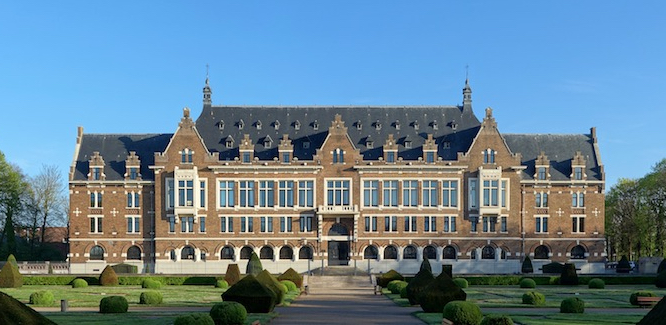Le CRIL en bref


Le Centre de Recherche en Informatique de Lens (CRIL UMR 8188) est un laboratoire de l’Université d’Artois et du CNRS dont la thématique de recherche fédératrice concerne l'intelligence artificielle et ses applications. Il regroupe près de 70 membres : chercheurs, enseignants-chercheurs, doctorants et personnels administratifs et techniques.
Le CRIL participe à la Confédération Européenne de Laboratoires en Intelligence Artificielle CAIRNE et à l'alliance régionale humAIn. Il bénéficie du soutien du Ministère de l’Enseignement Supérieur et de la Recherche, du CNRS, de l’Université d’Artois et de la région Hauts de France.
Le CRIL est localisé sur deux sites à Lens : la faculté des sciences Jean Perrin et l’IUT.
Actualités (RSS)
Séminaire Séminaire de Frédéric MARÇON - Laboratoire AGIR UR 4294 - Université de Picardie Jules Verne
Impact des chocs et vibrations sur la stabilité des biothérapies : Quels apports des données de vie réelle et de l’IA pour établir les recommandations ?
25 sept. 2025 - 14:00Assurer la stabilité des biothérapies pendant leur transport constitue un défi important, notamment face aux contraintes mécaniques mal maitrisées telles que les chocs, les vibrations ou face aux fluctuations thermiques. Si la régulation de la chaine du froid et des températures maitrisées est bien encadrée, les stress mécaniques restent peu explorés, malgré un impact avéré sur la stabilité des protéines et les risques iatrogènes associés. La quantification fine des conditions réelles de transport, à l’aide de capteurs embarqués (accéléromètres, gyroscopes, thermomètres), ainsi que la modélisation de leurs effets sur les caractéristiques physico-chimiques des produits biologiques, représente un enjeu stratégique en logistique pharmaceutique.
Séminaire Séminaire de Yasmina Beddar, Ingénieure Projets Européens - IRIT
Présentation Projets Européens
18 sept. 2025 - 14:00Présentation des différents dispositifs et projets européens existants.
Séminaire Séminaire d'Yves Lepage
Formalisation de l’analogie numérique, application à la reconstruction d’images
26 juin 2025 - 14:00L’analogie entre nombres binaires est assez bien comprise. L’analogie entre nombres réels est souvent comprise comme l’analogie arithmétique. Nous présenterons une formalisation de l’analogie entre nombres réels qui généralise aussi bien l’analogie entre nombres binaires que l’analogie arithmétique, ainsi que d’autres : géométrique, harmonique. Cette généralisation permet de définir une fonction d’aggrégation qui, sur des images, est une variation du 'pooling' par moyennes généralisées et dont nous montrerons l’application dans la rconstruction d'images.
Séminaire Séminaire de Virginie Justin Labonne
Accords Couperin
19 juin 2025 - 14:00Présentation sur les accords Couperin.
Pierre Marquis lauréat de la médaille d'argent du CNRS
Pierre Marquis est lauréat la médaille d’argent 2025 du CNRS. La médaille d’argent distingue des chercheurs et des chercheuses pour l’originalité, la qualité et l’importance de leurs travaux, reconnus sur le plan national et international. L’annonce des médaillés de la DR 18 Présentation de Pierre Marquis sur le site de CNRS Sciences Informatiques
Sébastien Konieczny nommé ambassadeur régional de la fête de la science en Hauts-de-France 2025
Sébastien Konieczny est nommé ambassadeur régional de la fête de la science en Hauts-de-France pour l’édition 2025 “intelligence(s)”.